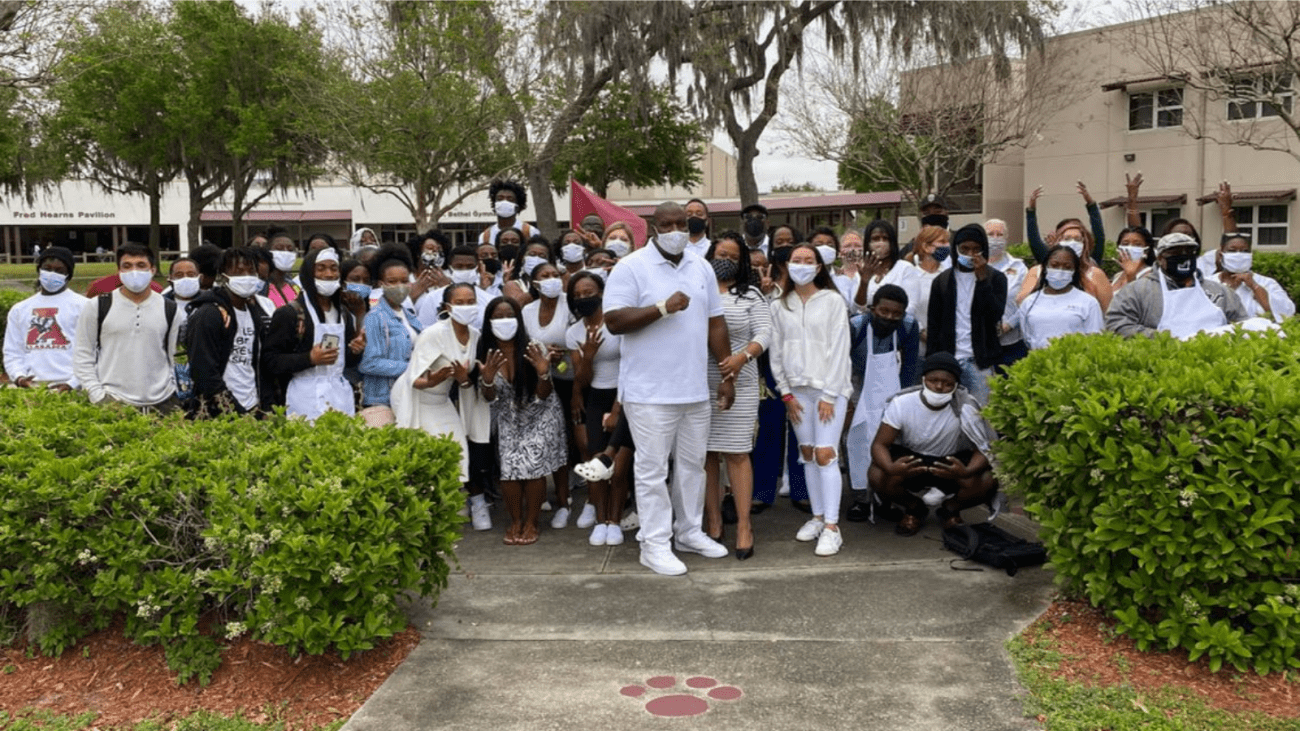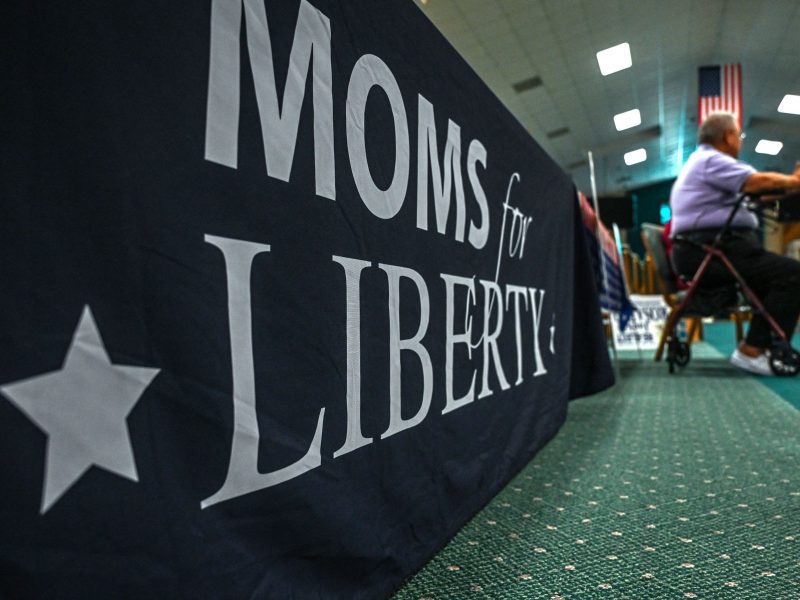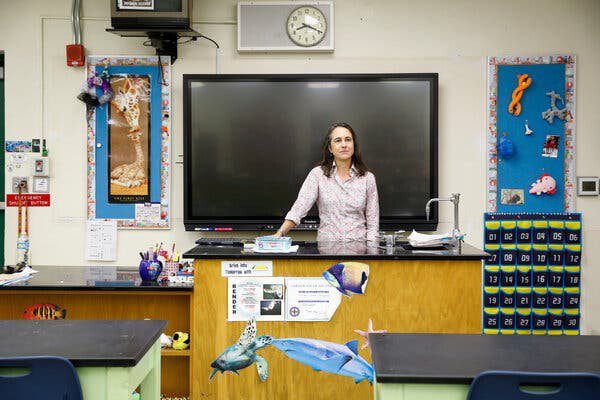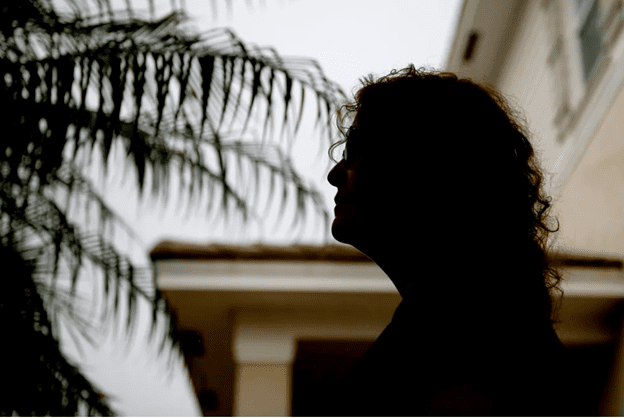Students rally behind Black Tampa school cop fired for using racial slur
Tampa Bay Times | by Tony Marrero | March 23, 2021
TAMPA — The word spread fast at Middleton High School: Officer White had been fired for using the n-word.
Delvin White had built up a rapport with students and staff at the East Tampa school during his three years as school resource officer there. Now the Middleton High community was trying to make sense of the decision by Tampa police Chief Brian Dugan to fire White, who is Black, for using the racial slur.
“I was confused and amazed,” said J’Lyn Green, a 16-year-old Middleton sophomore who called White “good people.”
“He shouldn’t have used it,” Green said, “but the punishment shouldn’t have gone that far.”
White’s supporters agree he should have been sanctioned for the behavior caught on his body camera. But ending the career of an effective, beloved Black officer at a school where nearly half the students are Black? They see that as unfair and counterproductive.
The firing March 2 made national headlines and raised an unresolved question: Should there be different penalties depending on the race of the employee using the n-word and the context in which they use it?
Dugan contends he had to be consistent under the city’s policy forbidding discriminatory language. White’s supporters are calling for the chief to reinstate the officer, who is appealing his termination to the city’s Civil Service Board with support from the Tampa Police Benevolent Association. An online petition created by a Middleton student has garnered nearly 1,300 signatures. An independent arbitrator may have the final say.
Yvette Lewis, president of the Hillsborough branch of the NAACP, is among those who say that use of the word should be looked at “holistically” and that White’s offense is not as serious as a white person using the slur against a Black person.
Lewis, who said she has received “a ton of calls” in support of White, sees another factor behind the Black community’s criticism of Dugan’s decision.
“Black folks are looking at this like, white police officers have done us wrong, shot us dead in the street, they have mistreated us and still have their job, so why would you want to fire this man for saying a word?” Lewis said. “That’s what I’m hearing.”
An East Tampa police family
White, 41, was raised in East Tampa. Working as a cop at Tampa schools runs in his family.
His father, Lawrence White, was with the Tampa Police Department for 27 years and became known as “The Rapping Officer,” spreading positive messages to students through hip-hop rhymes. He kept up the rapping as a community school officer for the Hillsborough County School District, a job he still holds. White’s mother Vivian worked as a patrol officer for the department.
Delvin White joined the department in 2012 and worked on patrol for a few years before his first assignment as a school resource officer at Franklin Boys Preparatory Academy Middle School. He started at Middleton in 2018.

Middleton High student Dava Leeks wrote a letter of support for Delvin White in hopes of helping him get back his job as school resource officer. “I can’t remember a time he turned any of us away without trying to help,” Leeks wrote. [ Courtesy Delvin White ]
Lavetta Sexil, J’Lyn Green’s mother, interacted with Delvin White while her son attended Franklin and then Middleton.
“He treats them like they’re his very own kids,” Sexil said. “When J’Lyn went to high school, we had an issue where we thought he was skipping. Officer White kept a close eye on him and if he wasn’t in class, he would let me know. We need officers like Officer White in our community.”
Former Middleton principal Kim Moore, who worked with White at the school for about a year, called him one of the best school resource officers she worked with during her 12 years there.
Students at the school, which is named after the late Black businessman and civic leader George S. Middleton, live in a part of the city “that has felt the brunt of police actions that are not always viewed as being appropriate or exercised at the same level as they would be in other communities,” Moore said.
“So our students were defensive,” said Moore, who now works as an assistant superintendent for Pasco County schools. “They didn’t always trust, and so sometimes those interactions can be difficult. Good SROs build relationships with students, so when they have to interact with students, it’s from a position of, ‘I care for you, I’m here for you, I’m not here to harm you and I want to avoid having you enter the system.’ And I believe Officer White did that.”
Moore said she never saw White disrespect students and considered him adept at de-escalating conflicts. He supported “restorative practices” for students who got into trouble and tried to avoid arresting them if he could.
White’s supporters say it’s time for the officer to get some restorative punishment.
Body camera video surfaces
White’s backers note that he has only a few minor blemishes on his record. Three of four previous policy violations in his personnel file were related to the operation of a department vehicle and one involved the search and transport of a prisoner. He received three letters of counseling and one written reprimand.
The case that led to White’s firing began when a supervisor, conducting what the department called a routine audit of body camera footage, stumbled upon a video that White apparently created by mistake.
In the video, White is driving away from campus after a varsity football game Nov 13. He can first be heard saying the n-word while driving. It’s unclear to whom he’s referring. He then dials his wife on his cell phone to tell her he’s on the way home.
“Every day I go to work and not one kid gets shot or stabbed, that means I done my job,” White says during their conversation. “That’s a lot of responsibility. You don’t have all that responsibility. … Well, some would say you have more responsibility. You manage a multimillion-dollar property, or just some ghetto n—a doesn’t get shot or stabbed.”
Confronted by a supervisor about the video and relieved of duty, White volunteered that he used the word again while he was arresting a juvenile on campus Nov. 30.
In body camera video of the arrest, White encounters a 16-year-old student who had been suspended but returns to pick up his brother. White tells the student to leave campus. The student becomes argumentative and increasingly agitated, yelling and cursing. White asks if he wants to go to jail, gives him a “last warning.” When the student fails to comply, White tells him he’s under arrest and to put his hands behind his back. The student can be seen resisting as White tries to handcuff him.
“You goin’ to jail now, n—a,” White says as he escorts the teen to a patrol SUV. When they arrive, White again orders the teen to put his hands behind his back.
“Man, make me bro, you trippin’,’ ” the student says.
“I told you, n—a, we ain’t playin’ with your ass,” White says as he pins the student onto a fence and cuffs him.
“You trippin,’” the student says.
“N—a, you trippin,’ ” White responds.
“You don’t know what a n—a be goin’ through,” the student says as White puts him in the back of the patrol SUV.

In a scene captured on his body camera Nov. 30, Tampa police Officer Delvin White arrests a student at Middleton High School. White and the student used a racial slur during the arrest. [ Tampa Police Department ]
White told his supervisor that he did not mean for the word to be derogatory. Instead, he said he was using the word as it is “commonly used in today’s society as a means of shared culture and experiences among the African American community,” disciplinary records show.
A complaint review board composed of five sworn officers unanimously decided that White violated a department policy on “professional responsibility and responsibility of enforcement.”
But only two of the five board members decided White violated a city policy forbidding “discriminatory conduct.” Such conduct is described, in part, as using “slurs, derogatory comments or any other physical or verbal conduct directed at or based upon another person’s race.”
A review board summary sent to Dugan said, “no one was insulted, no damage was done to anyone’s reputation and the victim did not feel offended or disrespected.”
Dugan said he lost sleep over a decision that he knew would be unpopular. But he said the totality of the two cases made him conclude that he had to fire White. The chief said he was troubled by White’s use of the adjective “ghetto” to describe students, and the way he used the word while arresting a juvenile.
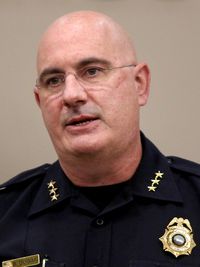
“People need to understand I can’t fire a white officer and not fire a Black officer for saying that,” Dugan said. “If you’re going to go for restorative punishment for him, you have to do it for everyone in the future, no matter what color they are. The policy is pretty clear that unless there are mitigating circumstances, you’re going to get terminated if you talk like that.
“My stance,” he said, “has to be color blind.”
The Tampa Bay Times asked Mayor Jane Castor if she supported Dugan’s decision. Her office replied with a statement: “Incidents involving city policy violations are discussed on the executive level of the organization to ensure consistency across all departments.”
‘Two different words’
Everyone who spoke to the Times for this story agreed that White deserved punishment for what see as unprofessional behavior. But they said the context — a Black officer using the word in referring to people of his own race — is a mitigating factor.

“He was speaking the language of the culture of that community,” said Kristina Ravenel, a Middleton math teacher and varsity softball coach who sent email to Dugan this month in support of White. The word, as White used it, Ravenel said, “is not the word that was referenced to Blacks back when we were slaves. It’s two different words.
“Every student I’ve spoken to in my class or on the softball team feel like he shouldn’t have been fired.”
Some Black people justify their use of the word as a way to culturally re-appropriate the slur and diminish its power, said Neal Lester, an English professor at Arizona State University.
But Lester, who has designed and taught a course on the word tracing its history from its origins to its use in pop culture, called that notion nonsense. He said the word as it’s used among Black people can’t be separated from the slur used for centuries by white people as a tool of discrimination and oppression.
“You can’t take the power out of that when it’s still connected to racism, and if you internalize the racism, then white people don’t have to use it because you use it among people who look like you,” said Lester, who watched White’s body camera videos. “If (White) is using that with this young man he’s upset with, where is the power taken out of that? And if he’s talking disparagingly about a group of Black people, where has the power been taken out of that?”
Lester, who is Black, said White’s “ghetto n—a” comment conveys a potential bias against some Black people and seems to reinforce what the professor called the “ridiculous” premise that “there’s Black folks and then there are n-words, and those are the ones that are not respectable and don’t do anything to advance the race.”
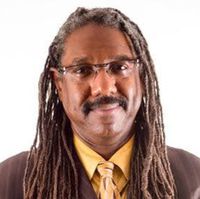
Former Middleton teacher Sonja Harvey McCoy has lived through much of the n-word’s arc in America.
The granddaughter of Tampa civil rights leader Perry Harvey Sr., McCoy attended school in Tampa not long after integration and had the slur and spit hurled at her by white people along. Later, as a teacher for Hillsborough County schools, she saw how the word became prominent in rap music, how students used it among themselves.
McCoy spent 10 years at Middleton before retiring last fall. She saw firsthand how well White handled what she called a challenging assignment for a school resource officer. And she and others in East Tampa have had experiences with Tampa officers who were not fired or even disciplined for worse behavior.
“I don’t condone the use of the word, but instead of throwing the baby out with the bathwater, reprimand him,” McCoy said. “His good outweighs the bad.”

After the firing was announced, Middleton student Anjali Bryant created a petition page at change.org titled, “Get Officer White his job back.” Bryant acknowledges on the petition page that White “did make a mistake, but the punishment was too harsh.”
“We feel that nothing Officer White said jeopardized the trust he has established in our community,” the page says. “The students at Middleton High School love Officer White and we know he feels the same based on his actions.”
White, a father of five children ranging in age from 14 to 24, created a webpage after his firing that features testimonials from former students and other community members and encourages action among his supporters. He also made a GoFundMe page to help the family while he’s not getting paid.
“To be clear I do not condone racism in any manner, but my words were taken out of context,” White wrote on the GoFundMe page. “None of the parties involved in the incident remember the use of the word, took offense or filed a complaint. The word was said in a familiar manner as a way to relate to one another.”
On Monday, scores of Middleton students and some staff members wore white to school as a show of support for White, who attended and posed for photos.
“We’re not condoning what I did, but we don’t think I should have gotten terminated,” White told the Times. “I’m amazed by the support I’ve received and really want my job back so I can continue my work in the community.”
Featured image: Delvin White, center, stands with students and staff at Middleton High School on Monday, wearing white to show their support for the fired Tampa police officer as he tries to get his job back. White, who was a school resource officer at Middleton, was fired for using a racial slur on two occasions. [ Courtesy Delvin White ]



